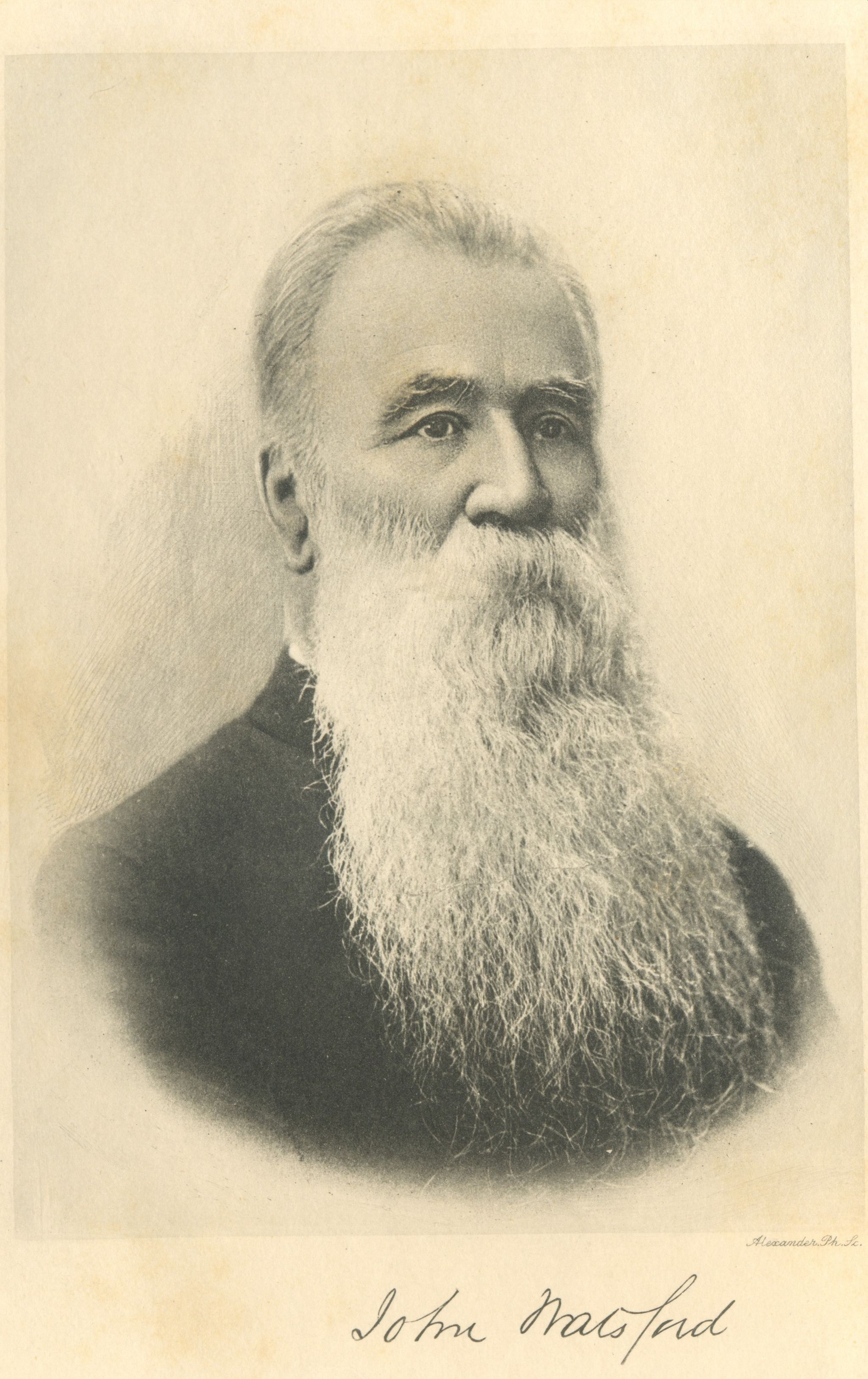John Watsford
TKS 1832 - 1837
MISSIONARY and CHURCH ADMINSTRATOR

“I remember my first examination in history at The King’s School and how lamentably I failed: but a kind word of encouragement from the Headmaster stimulated me to plod on with the determination to succeed.”
John Watsford did succeed and his life would influence many both overseas and in Australia. John was one of the first pupils to attend The King’s School for he arrived in its opening year. His father had been a convict but was now a successful coachman in Parramatta.
John’s life found direction in 1838 after he was converted at a revival meeting led by the Rev. D. Draper. He taught at TKS for the next two years before applying and being accepted by the British Wesleyan Conference as a probationer for ministry. John was the first Australian born minister at the Wesleyan Conference.
In 1844, a month after John married Elizabeth Jones, they left Australia as missionaries in Fiji. This was to be one of the most rewarding times of John’s long life. It was not easy because feuding tribes and cannibalism posed a threat to the lives of the Christian missionaries. Living conditions were primitive and took a toll on the health of his family. In 1850, the decision was made to return to Australia where for twelve months John was the Circuit preacher around Moreton Bay.
The following year despite misgivings about the health of Elizabeth, John returned to Fiji. Together with Rev J. Clavert, John translated the New Testament and many hymns into the local language. This was a lasting legacy.
John returned to Australia and held preaching positions in Surry Hills, Goulburn and Maitland. The Wesley church recognised John’s leadership abilities and he was appointed Chairman of the South Australian district where he actively campaigned to set up a Wesleyan College at the University. In 1868, the Watsford family then moved to Ballarat, where John was appointed Chairman of the Lydiard District Circuit and in 1871 President of the Conference of the Australasian Wesleyan Church. Instrumental in establishing the Wesleyan Home Mission in 1875, John was then appointed the General Secretary. This exhausting work was to take its toll on John’s health. He retired from the Home Mission in 1883 but not from ministry.
Changes to the Education Act meant that there would be no more government funding for Religious Instruction in state schools and so John founded the Voluntary Instruction Association to ensure that all state school children had access to Religious Education through the work of Volunteers.
John died in 1907 having devoted his life to serving his God. Contemporaries saw him as an articulate, fervent preacher who was able to reach many with the Gospel message.